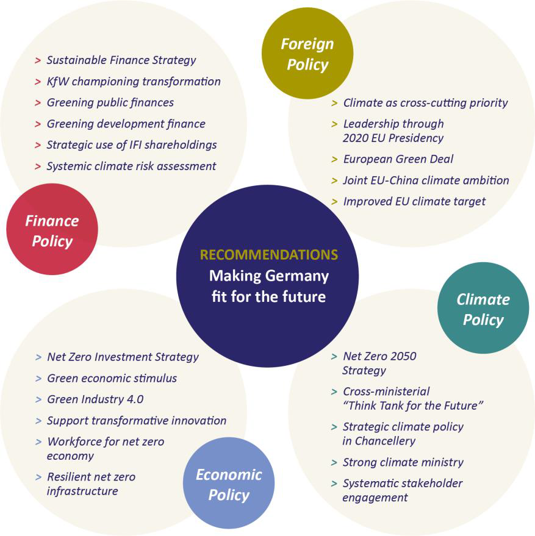Germany, the largest economy in Europe, with a strong financial sector closely tied to the real economy, faces massive, potentially disruptive changes in the coming years.
Specifically, these are the challenges of digitalisation, the geopolitical context, the macroeconomic slowdown and the climate crisis.
For many years, Germany’s economic strength has been based on prudent monetary policy, a highly skilled workforce and a renowned manufacturing sector that has successfully built up export markets across the world. Germany has enjoyed political stability and exhibited a contained approach towards foreign policy, where Germany regularly played by the rules set by others in the liberal international order.
However, these pillars of Germany’s strength and stability may not be the right tools to manage the upcoming disruptive changes. The emerging megatrends of the 21st century bring new challenges:
- Digitalisation is changing the rules by which businesses and markets are run, and the famous German “Mittelstand” is lagging in adopting digital technologies. Innovations in automation and artificial intelligence are changing manufacturing processes and job profiles.
- With an export-oriented economy and international supply chains, Germany thrived under the multilateral, rules-based system of the last decades. But this system is now challenged by rising nationalism around the world, by social inequality and political fragmentation, and by the climate crisis. The future will require the European Union, and Germany in particular, to play a more proactive role in making and supporting international rules.
- Germany has recovered well from the 2008 financial crisis and has been thriving for a decade in an economy with low interest rates, decreasing public and private debts and low inflation. However, with stagnant demand and limited appetite for additional targeted investment the market alone will fail to deliver the stimulus needed to kick-start sustainable economic growth.
In many countries, and internationally, governments are taking steps to address structural economic shifts through new financial policy approaches. The trend is particularly well developed in relation to climate change and sustainability, from the European Commission’s sustainable finance agenda to the moves by central banks to green financial rules. Different national circumstances have led to a variety of green finance approaches at national level. To date, Germany and its financial system have been slow in preparing for the coming changes.
Faster and stronger climate policy is a crucial means to increase Germany’s resilience in the face of these intertwined disruptions, by spurring innovation, ensuring social cohesion and restructuring an industrial core that will be competitive in tomorrow’s climate-neutral world. Altogether, a set of policies and measures – summarised in figure 1 below – can help to make Germany, deeply rooted in the European Union, ready for a fundamentally different future. A future that is climate-safe, digital, geopolitically balanced, and economically successful.
Given the parallel development of major disruptive trends in technology, geopolitics, macroeconomics, finance and climate, the question is not if Germany will be changed or not, but to what extent Germany can actively shape the transition and reap the benefits of change. Ambitious climate policy supported by financial policy innovation can reduce systemic risk, ensure the competitiveness of German industry, and mobilise the necessary investment for Germany’s transformation to a net zero economy.
Read the full report, Is Germany Ready for the Future, here.
A German language summary and recommendations can be read here.



